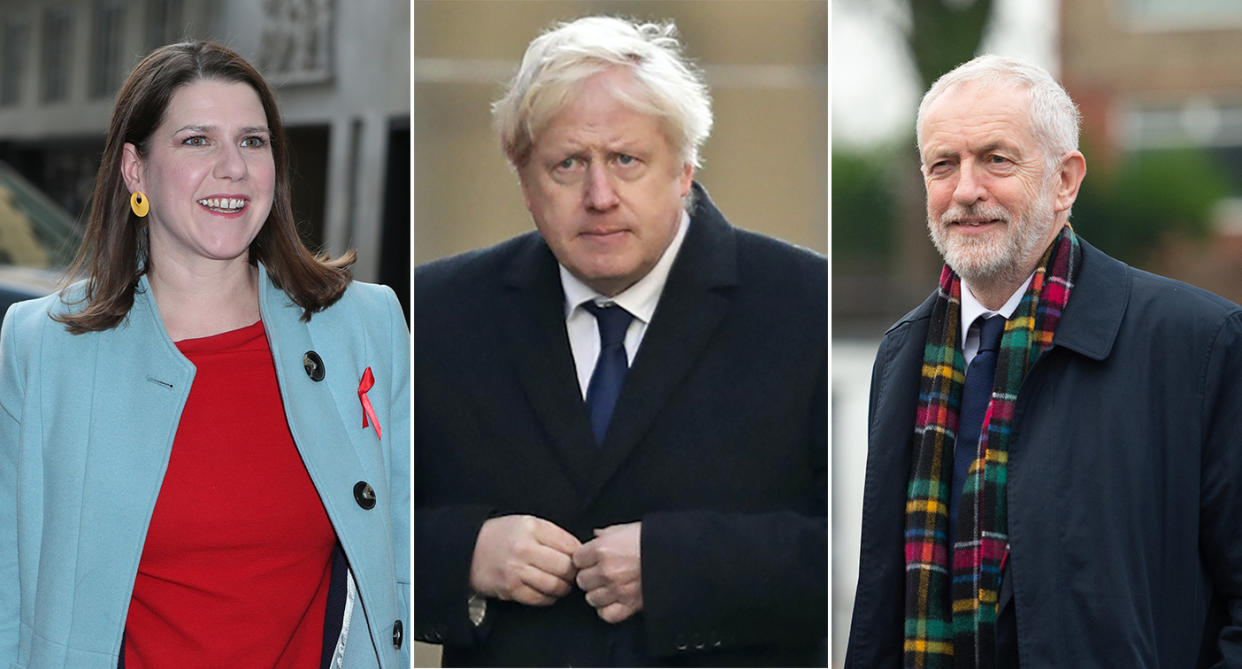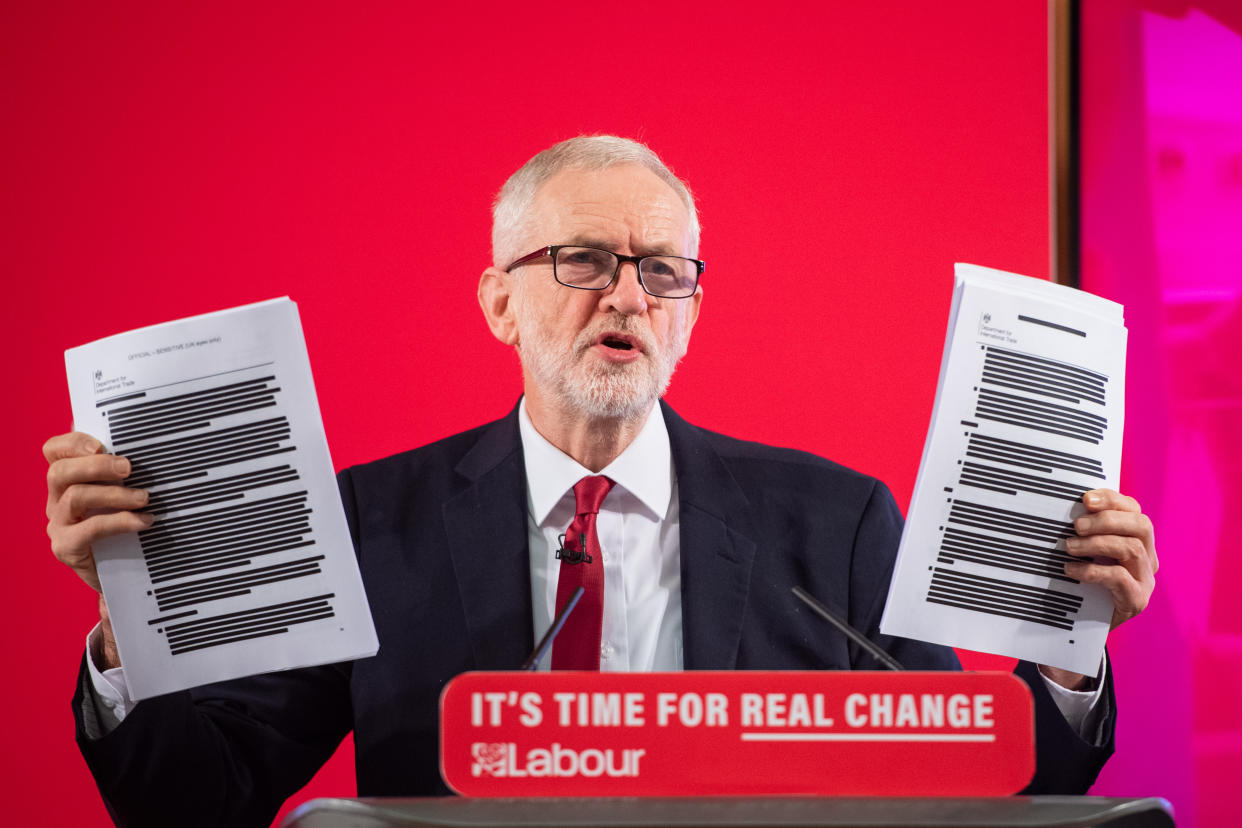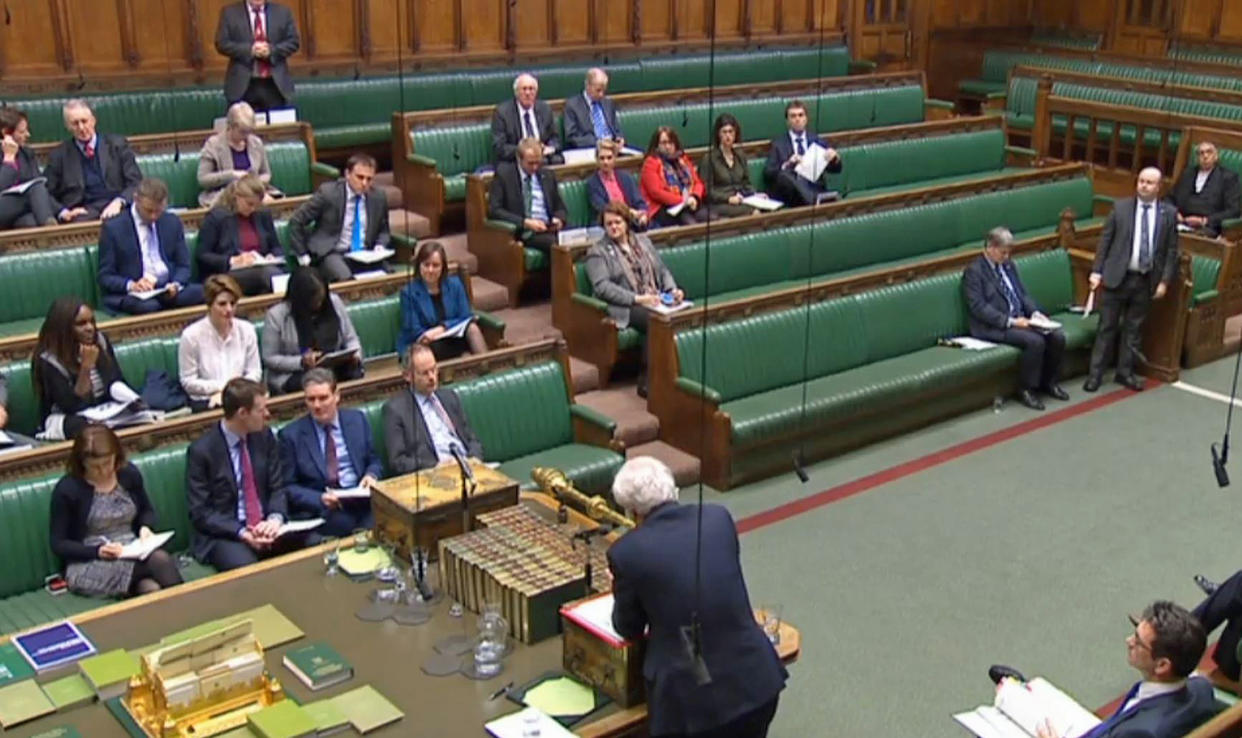Fake news used at a scale 'never seen before' in an election campaign, expert says

Fake news and misleading information in the 2019 election campaign are at a scale “never seen before”, experts have warned.
The past few weeks have seen MPs bombard the public with claims that have been misleading at best and outright lies at worse.
Within the past few weeks, Boris Johnson’s claim of planning to recruit 50,000 nurses has been heavily contested and Jeremy Corbyn’s assertion that Labour investigates all cases of anti-semitism was called into question.
Meanwhile, the Liberal Democrats have been accused of publishing misleading polling data on their leaflets.
Will Moy, the chief executive at FullFact, believes new tactics have misled voters and that it should not be possible for political parties to get away with it.
He has called on election laws to be tightened and for politicians to have enough “self-respect” to rise above telling misleading statements and ensure what they put out is trustworthy.
He told Yahoo News UK: “This election has been full of accusations of dishonesty and that is at a scale we’ve never seen before.”
His organisation, a registered charity, started fact checking in 2010 and has taken on four general elections and three referendums in that time.

But this campaign is distinct from previous elections.
“We are used to politicians putting their best foot forward, not exactly telling us when things haven’t gone right, and being selective with what they point out,” Mr Moy said.
“Nobody’s naive enough to imagine that a politician campaigning to get elected is going to tell you the truth, the whole truth and nothing but the truth.
“The thing that’s really striking is the introduction of new campaign techniques - techniques is being kind, new campaign tactics - that we haven’t seen before, that involve misleading the public.
Mr Moy is worried about how campaigning is carried out online because electoral law has not been sufficiently updated.
Last week, during the ITV leader debates, the Conservatives’ press account on Twitter was temporarily rebranded as “Factcheck UK” and posted tweets supporting Boris Johnson, which Mr Moy criticised as “misleading and inappropriate”.

He said traditionally those kind of tactics would be branded as “disinformation” which parties should not be adopting.
The Tories also set up a website which looked like it held Labour’s manifesto but instead had criticism of Jeremy Corbyn.
“One of the things that’s striking about that is some of these things wouldn’t be possible under traditional election laws for offline campaigning, where you put your name on what you put out and what you’re promoting,” Mr Moy said.
“The principal of transparency in campaigning is very clear under election law but because we haven’t updated election law to apply online there are very big areas where people can test the boundaries of what’s acceptable, and there are really no constraints that have been agreed democratically to say what we allow.
“We need new rules for the online era and the Electoral Commission’s been saying that for 15 years.
“The other thing is we need self restraint and self respect from the political parties, who when they make campaigning arguments, should be prepared to make them in their own name.”
But the situation offline is not much better.
Labour has revealed documents it says show the NHS is “on the table” in a trade agreement with the US but FullFact said the papers “don't clearly show us what, if anything, the UK has actually agreed”.

Both the Tories and the Liberal Democrats have been criticised for their leafleting, which has included material designed to look like local newspapers that instead only promote their party.
“That is misleading the public but it is also co-opting the trust in independent journalism to try to get a party message across,” Mr Moy said.
He added that it is “very disappointing to see political parties behaving that way”.
Part of the problem is that politicians recognise that voters don’t trust them to tell the truth anyway.
“If politicians live down to those expectations, we end up in a really bad place,” Mr Moy said.
“Politicians have to have self-respect to stand up for high standards in public life even when the public don’t respect them.
“All of the rest of us need to be willing to give politicians a hard time but also a fair hearing, and I think if we all switched off from politics we will do huge damage.
“FullFact is basically about giving people a better option than blind cynicism and at the moment we’re in danger of blind cynicism taking over.”
Have had 6 or 7 Lib Dem leaflets now - none from labour and 2 from Tories. Above was a mock local newspaper, which seemed a little disingenuous. #GE2019 pic.twitter.com/txaP3lZHXD
— David Eastwood (@dj_eastwood) November 27, 2019
His group uses a combination of open source information, experts and its own in-house expertise to check politicians’ claims, whether they are made in speeches or manifestos.
FullFact is part of the solution to challenging misleading claims but more needs to be done to prevent those claims from being used as a campaigning tool, Mr Moy believes.
“The first thing we need to do is update election laws so that transparency rules that already apply offline now apply online,” he said.
“That’s urgent, the House of Commons (digital, culture, media and sport) select committee called for emergency legislation before this election and they were right to do so.
“We need to recognise how big the decisions that the internet companies are taking about British democracy are, and put some of those choices into an open, democratic, transparent context.
“So if we want rules about election advertising online those should be made by British Parliament in a democratic way, not by US internet companies.”

He wants to see real-time transparency about the reach and spend for online adverts.
There also needs to be a “serious conversation” about politicians on how they conduct the campaigns, he said.
But he stressed that not every politician is guilty of putting out misleading information.
Mr Moy also believes that, despite his warnings of blind cynicism potentially taking hold, FullFact’s mission is being embraced by the public.
‘I think there is a real appetite in this country for making politics work for everybody, to feel like something that can be trusted and full fact is one part of that,” he said.
“I think if we can harness that energy we can have really good politics.”


